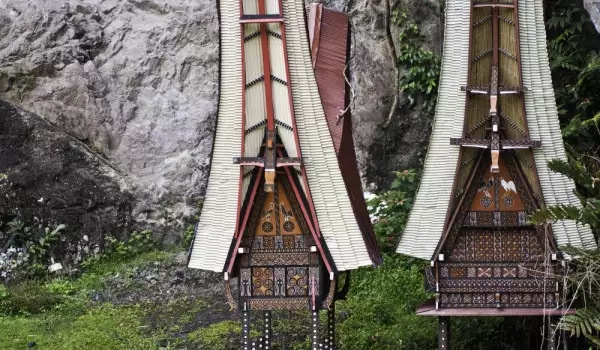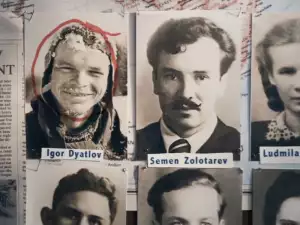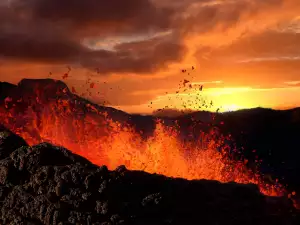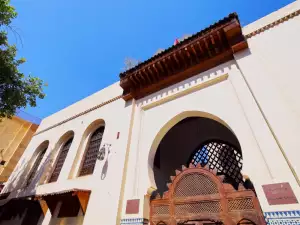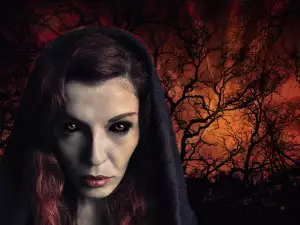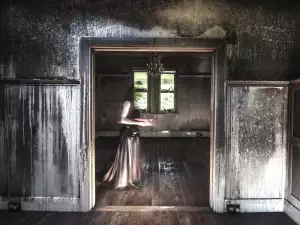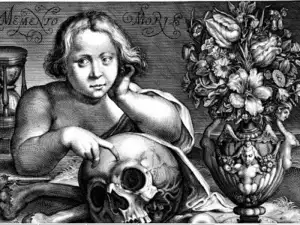Houses similar in appearance to boats, with bison horns lining the exterior walls (a symbol of wealth), are a common sight in South Sulawesi, Indonesia. These types of houses are called tongkonan and are designed for the dead.
In translation from the local language, tongkonan means where the family gathers. According to legends, the first such house was built by the deity Puang Matua.
Even though the majority of inhabitants on the Indonesian Peninsula are Christian, they have preserved a pagan ritual of honoring the dead, one they still practice today.
At the foundation of the ceremony are the tongkonan houses, which are not inhabited by living people but by the embalmed remains of their deceased loved ones. As Christianity requires, before they are buried, the bodies of the dead are stored in these houses of death.
While they remain in the houses, the deceased are considered alive by the community and their relatives are obligated to change their clothes and bring them food every day. Incantations are read near the hands and feet of the departed, the belief being that they may get up and walk to their grave on their own.
When the funeral day arrives, the entire village flocks to the event, bringing gifts that symbolize the victim. Indonesians believe in the afterlife and place various objects near the dead that they may find useful in the great beyond.
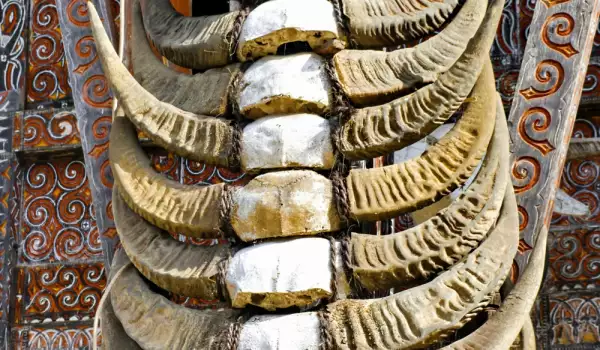
The grave looks more like a mausoleum among the rocks, while the body is placed in a small casket, surrounded by all sorts of gifts.
The funeral needs to be magnificent and opulent, which costs the locals tens of thousands of dollars. Since most of them are unable to save up that amount quickly, the bodies of the dead remain in the houses for months, sometimes even dozens of years.
Until then, the departed is simply considered sick and their living relatives care for them, their lives paradoxically revolving around death, until they gather enough money for a proper burial in accordance with traditions.
